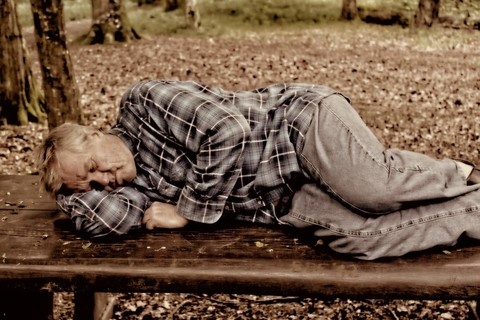Poor sleep in the elderly
Poor quality sleep or disturbed sleeping patterns can be unhealthy to most of us. But poor sleep in old age is even more problematic to long term health than we might think.
Those who suffer from fragmented sleep in older age have an increased risk of a stroke and hardened brain arteries, according to the findings of a new study published in the American Heart Association’s journal – Stroke.
have more information on this topic.
How to get quality sleep in old age
With this new study in mind, we have some tips that could help you or a patient or client to get a better night’s sleep.
- Sleep in old age can often be disturbed by needing more trips to the bathroom, so you can try to reduce the amount of fluids you drink before bed.
- Watching TV or other device screens will not prepare your mind and body for sleep. Instead read a book, listen to calm music or even play some scrabble or do some crosswords.
- Routine can help your sleep patterns get back on track. Setting a bedtime and wake up time will help this.
- A warm bath before bed is a great idea to relax, and it will also help you feel tired due to the drop in body temperature.
- Sleeping too much during the day may mean you’re not tired enough at night. Try to reduce how much you nap or even stop napping altogether.
- Alcohol can cause disrupted sleep patterns and make it hard to fall asleep, start by reducing the amount you drink to eventually cut it out.
Increased risk of stroke and hardened brain arteries
The researchers found that poor sleep in old age is associated with more severe arteriosclerosis as well as a greater burden of oxygen-starved tissue. These could contribute to the risk of stroke and cognitive impairment. Sleep monitoring may be a way to identify if an elderly people are at risk of a stroke.
“In the study, researchers examined autopsied brains of 315 people who had undergone at least one full week of around-the-clock monitoring for rest or activity, from which sleep quality and circadian rhythms were quantified. The average age of the group was 90, and almost 70 percent were women.” – RTT News
Tiredness can contribute to falls
Sleeping well at night is incredibly important to keep energy levels up, especially in elderly people. Lack of sleep in old age, and therefore lack of energy, may result in more accidents or falls in the home.
If you’re concerned about someone suffering a fall at home you can refer them to us online or by phoning a member of our team on 0800 635 7000.




